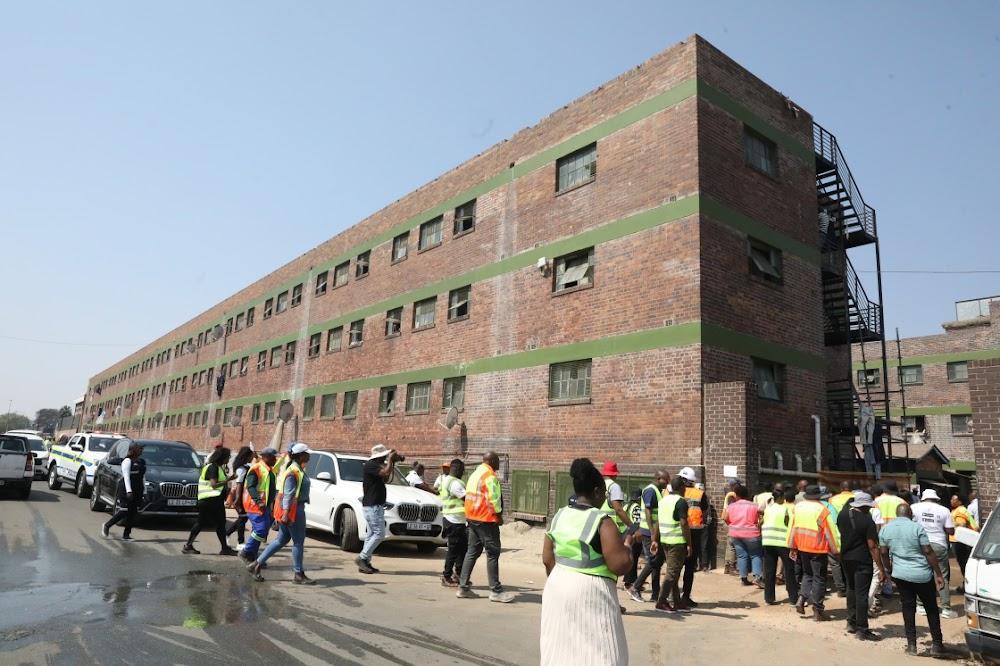Africa-Press – South-Africa. We can now access water from our units.”
This is the sentiment of Skhumbuzo Zulu, who has been staying at Jeppe Men’s Hostel for more than a decade.
While the hostel, which accommodates more than 15,000 residents, still appears dilapidated and squalid, Zulu believes the much-needed refurbishment will go a long way.
“They are painting inside, laying tiles, and everything seems to be going well,” he said. “We were struggling to get water. We had to go outside to collect it but now we have running water inside,” he said.
Jeppe Men’s Hostel is one of the five hostels in the inner city that the Gauteng department of human settlements is renovating and upgrading. Other hostels in the inner city include George Goch, MBA, Murray & Roberts and Denver.
MEC for human settlements Tasneem Motara conducted an oversight of these hostels to monitor progress on the upgrades and interventions of the R500m project, which is expected to be completed by May next year.
The local ward councillor for Jeppe Hostel, Themba Mkhize, said people were living in dilapidated conditions. He said the project would improve conditions while waiting for family units or RDP houses. He said they should get all the services they need from the city while waiting.
He said more than six people were sharing one room at the hostel. He added that in some of those units, you find 12 people staying in one communal unit, sharing a bathroom and a kitchen.
“There is no privacy, but we are doing renovations — maintenance so that they can stay while waiting for a place they can move to,” he said.
He added that it had been more than 25 years since the hostel was maintained.
“It was worse, the sewage was running all over — it was a place that didn’t have window panes and the roof was leaking.”
He added that until the family units are made maintenance will be done.
He said the challenges were that they were working while people were living inside their units.
“About 15,000 people stay here. You find a unit made for four people has 12-14 people.”
He said the problem was that most people who were struggling to find jobs would move into the area and stay there until they could secure a job.
“We have spoken to the department of human settlements because in the inner city we don’t have space, we don’t have RDP houses.
Motara said the department conducted a condition assessment, appointed consultants, engineers, and architects before starting the project.
“They then do an assessment of the building and they check what is working, not working and what needs to be replaced or repaired. That’s how we developed what needed to be done. What is then taking place is external works and civil works related to the roads and stormwater,” she said.
“Obviously, you know that these hostels were developed for a certain number of people. Over time, that population has grown and the infrastructure, bulk infrastructure, has not been able to keep up,” she said.
Ward 65 councillor Nkosikhona Khanyile, who has four hostels in his ward, said the conditions in the hostels before the repairs were terrible, but since the start of the project, the situation has been gradually improving.
“After these repairs and renovations, we are happy that the lives of people have changed. It is a little bit better,” he said.
He added that there are some recognisable changes that are bringing dignity to the hostel dwellers.
For More News And Analysis About South-Africa Follow Africa-Press






